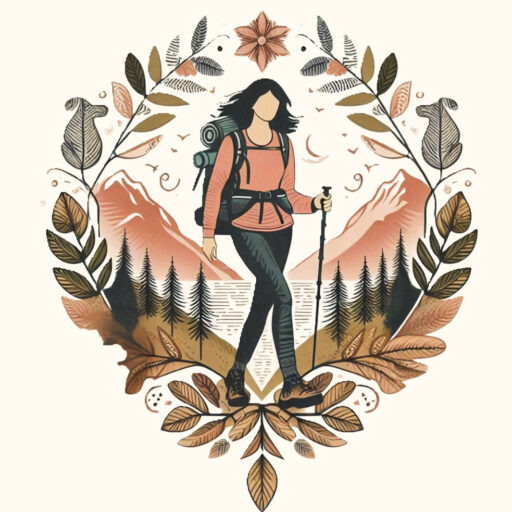Characteristics Needed Of Hikers
Endurance is at the heart of any successful hike. Imagine yourself on a long, winding trail that tests your physical and mental limits. That’s when endurance makes all the difference. It pushes you to keep moving forward, even when your legs feel like concrete.
Building stamina isn’t just about hitting the gym. It’s about consistent training that mirrors the actual hiking experience. Think of those gradual inclines and rocky terrains. Start by adding inclined walking or hiking sessions into your routine. Tracking progress by gradually increasing time and intensity is key.
Physical endurance is closely tied to mental strength. Picture this: you’re halfway through a grueling hike when self-doubt kicks in. That’s when mental fortitude takes the wheel. Conquering negative thoughts and focusing on small milestones will keep your spirits high. Simple meditation techniques or breathing exercises can be your secret weapons.
Fighting off fatigue starts with what you consume. Quality nutrition fuels your body for those long trails. Packing energy-boosting snacks like nuts and dried fruit keeps you going. Hydration is equally crucial. Investing in a quality water bottle with easy refills can make all the difference during those extended trips.
By building endurance, both physically and mentally, you’re setting yourself up for amazing hiking adventures. Whether it’s a local trail or a distant national park, embracing these endurance traits will open up a world of exploration and achievement.
Adapting to Nature: Cultivating Flexibility, Tolerance, and Ingenuity
Flexibility is a hiker’s best friend. Trails are unpredictable—weather can shift from sunny to stormy in minutes. Being flexible means adjusting your plans without skipping a beat, whether it’s taking an unexpected detour or finding shelter during a downpour. Practicing adaptability through small exercises, like changing your route spontaneously during practice hikes, builds confidence in making on-the-fly decisions.
Tolerance, in the hiking world, goes beyond just dealing with the cold or heat. It’s about thriving in any discomfort nature throws your way. Camping on hard ground or enduring relentless mosquitoes demand a good dose of tolerance. Recognize discomfort as a part of the adventure and equip yourself with the right gear to mitigate these annoyances.
Ingenuity shines when the trail throws unexpected challenges your way. Maybe a vital piece of gear fails or the path ahead is blocked. Quick, creative problem-solving skills can save the day. Think outside the box—use a bandana as a makeshift bandage or find a new path when the trail seems lost. Engaging with online hiking communities or reading survival guides can spark ingenious ideas that might just come in handy.
Personal stories from seasoned hikers often highlight these traits. A change of plans due to a landslide, or finding a way across a swollen river, bring out tales of flexibility, tolerance, and ingenuity put to the test. Share these moments, and you’ll find you’re not just hiking; you’re weaving an incredible story of resilience and creativity.

Slavisa
The key features needed for successful mountaineering are highlighted. The author emphasizes the importance of endurance, flexibility and tolerance, because hiking often brings unpredictable challenges. Also, creativity and problem-solving ability are necessary to deal with unplanned situations on the track. The article provides practical advice for developing these skills, such as gradually increasing the difficulty of the trails and learning from experience. These features help hikers stay safe, enjoy nature and successfully overcome all obstacles on their way.
Angela M.
Hello Tina!
I really agree with the article’s point about how crucial mental endurance is for hikers. I’ve found that staying mentally tough is often more challenging than the physical side of things, especially on long hikes. When fatigue sets in, that’s when your mindset has to carry you through.
Flexibility and ingenuity are also essential; the best hikes I’ve had were those where I had to improvise, whether it was navigating through unexpected weather or figuring out an alternative path. It’s those moments of adaptability that often make the adventure more rewarding!
What’s the most creative solution you’ve had to come up with on the trail?
Angela M 🙂
admin
I can’t really say that it was creative but I did have to remind myself of how I use to finish my ruck marches in the military and that was how I would mentally finish a hike that was starting to get physically challenging for me